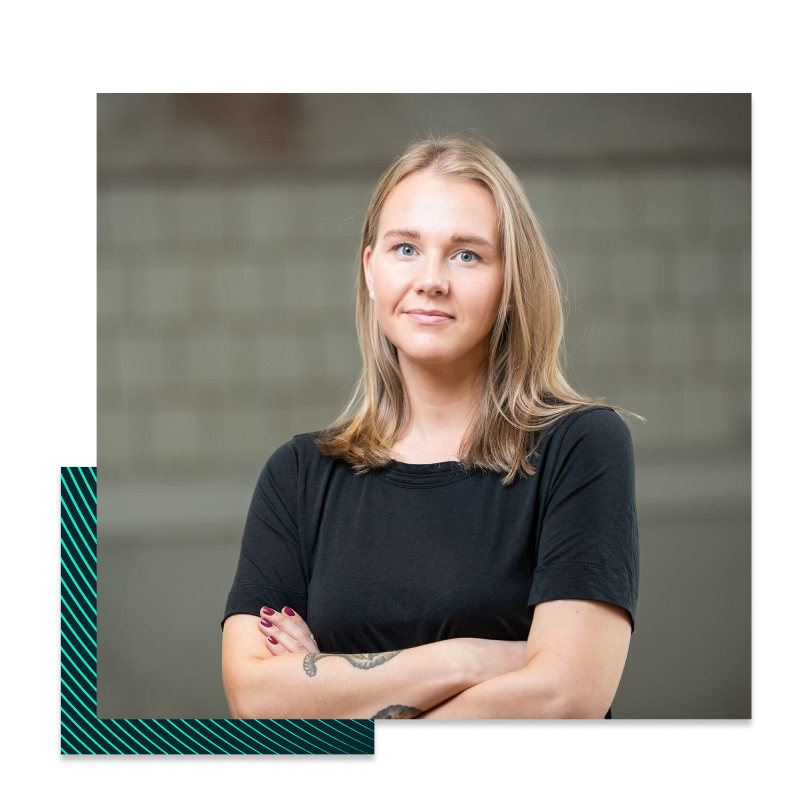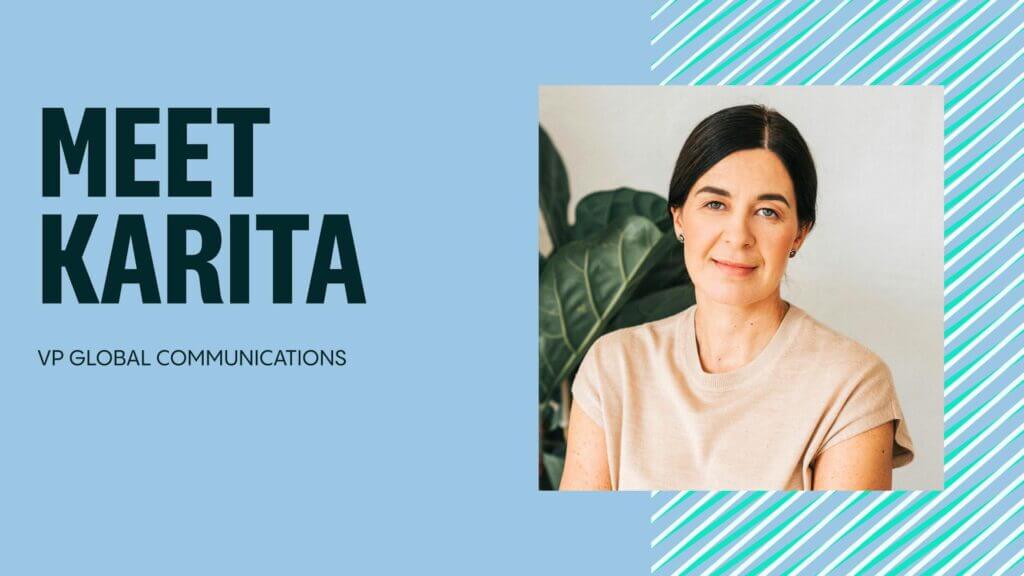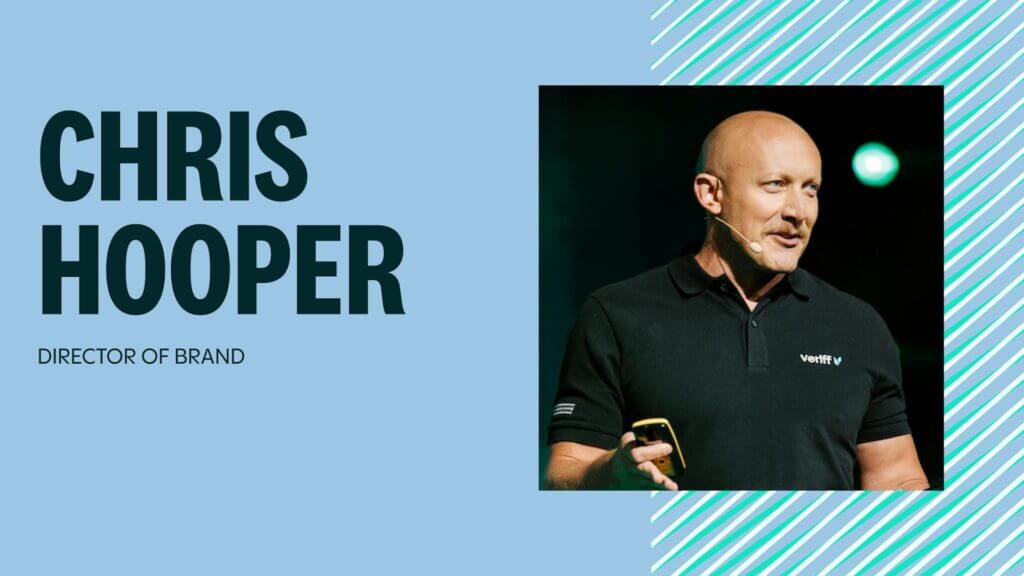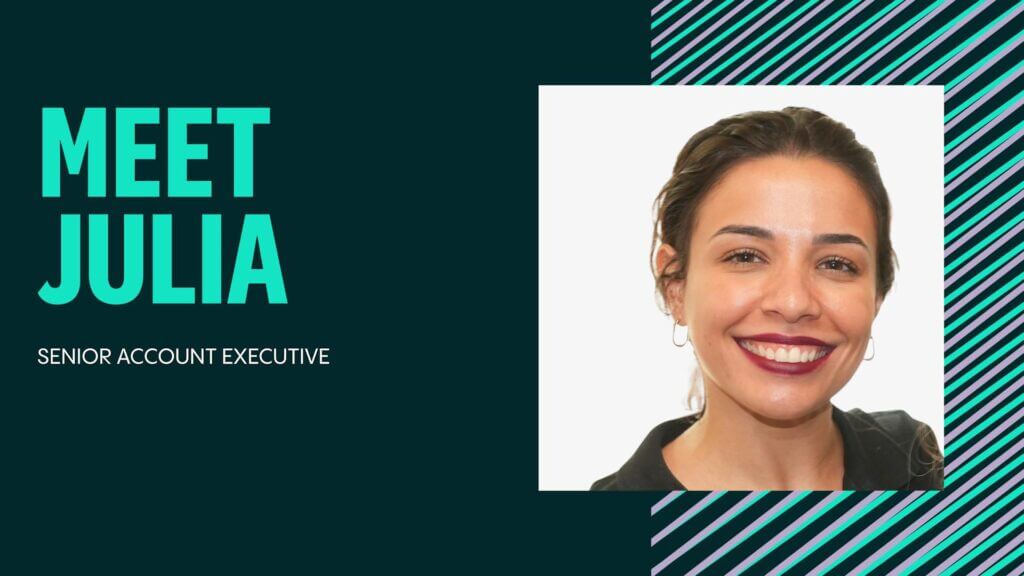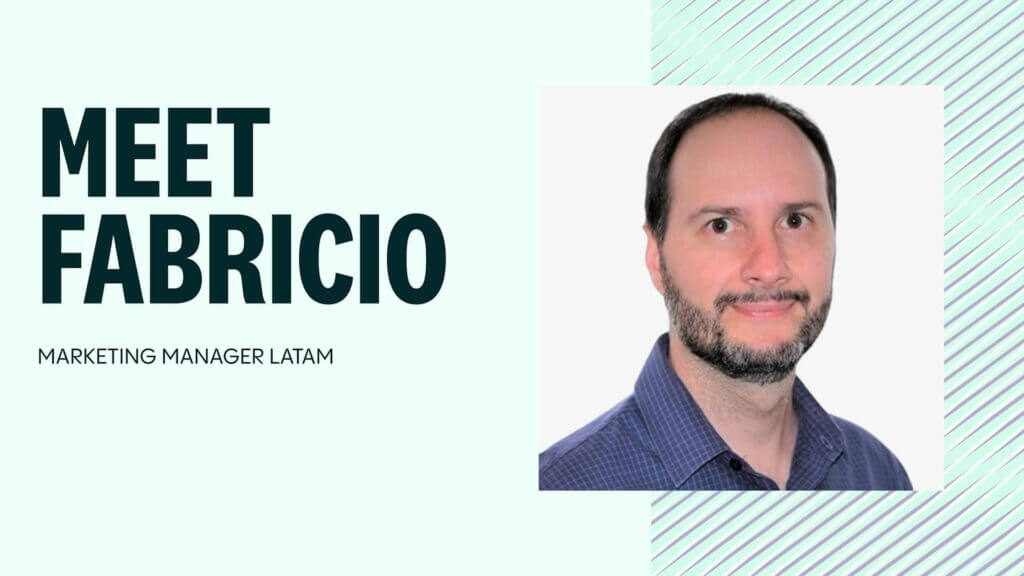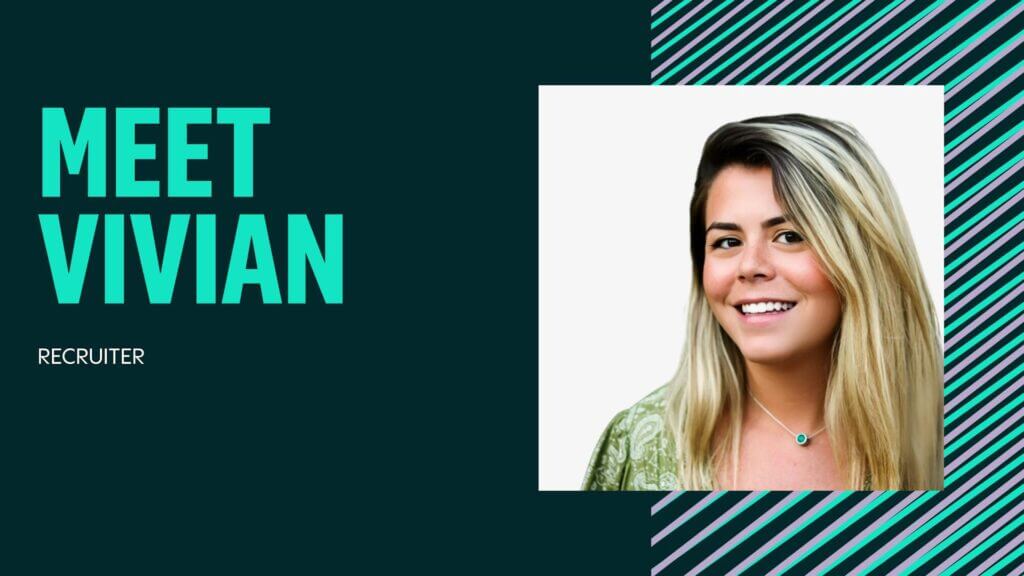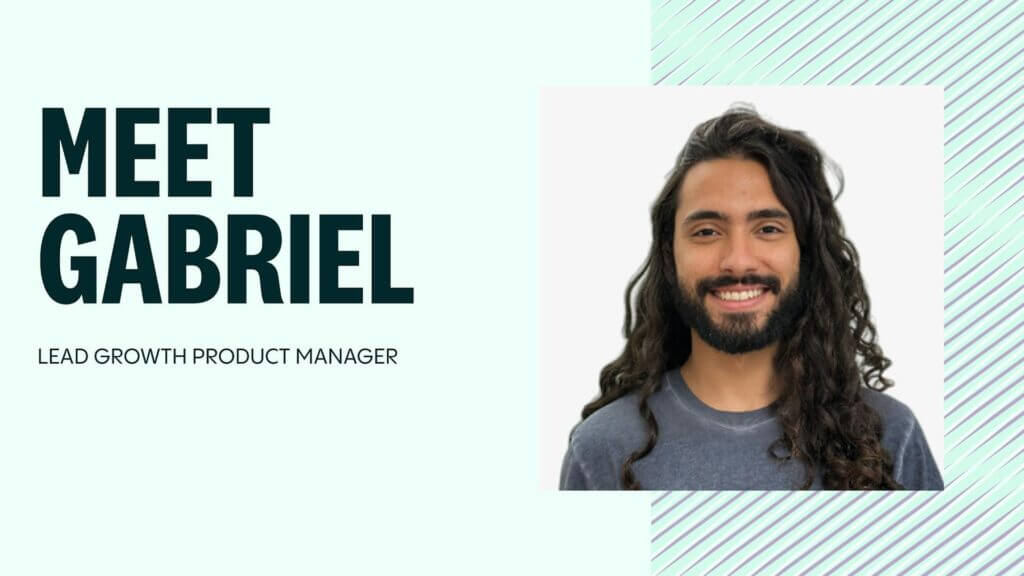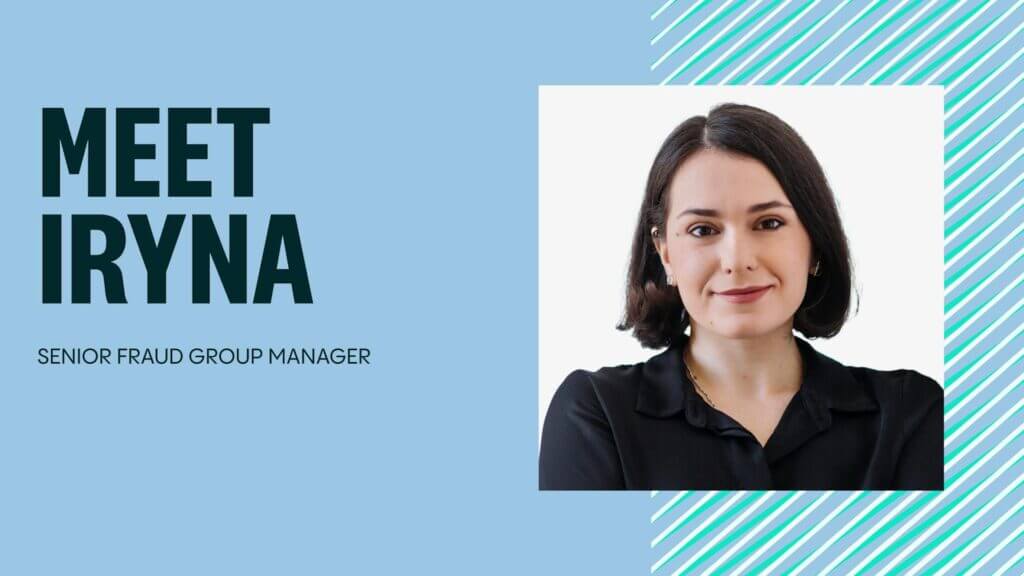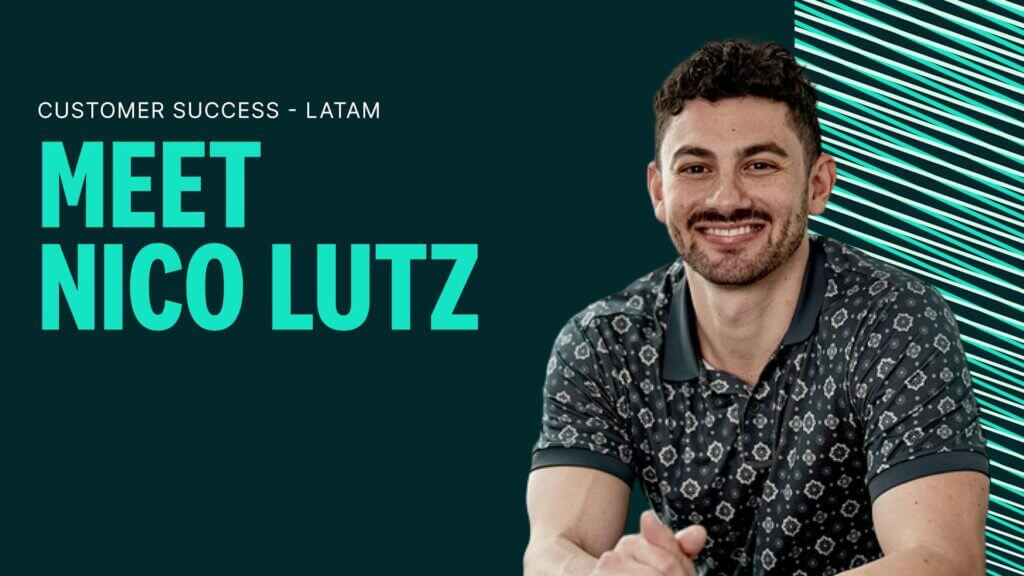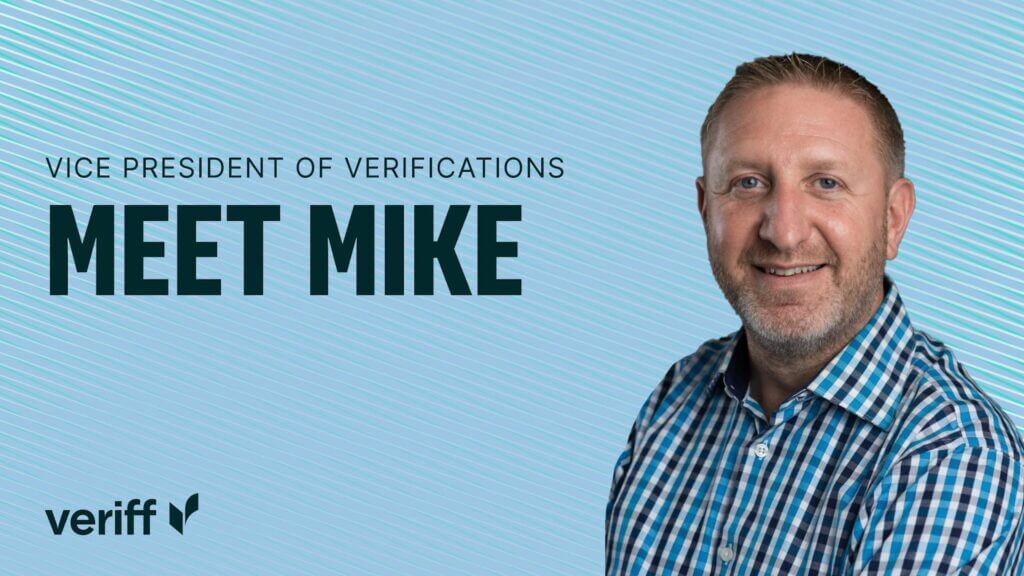Our People
From academia to the startup world
Paco is a Data Scientist at Veriff. After having multiple years of experience in the academic world as a PhD researcher, he joined our team in March 2022 to face new challenges and grow as a professional. Paco is originally from Spain, and he enjoys working remotely from different parts of the country. Recently, we had a chat about his career, life in academia, and working at Veriff. In his free time, he enjoys playing musical instruments and doing different sports activities. He also helps an NGO that creates scientific collaborations with his skills as a Data Scientist. Enjoy!
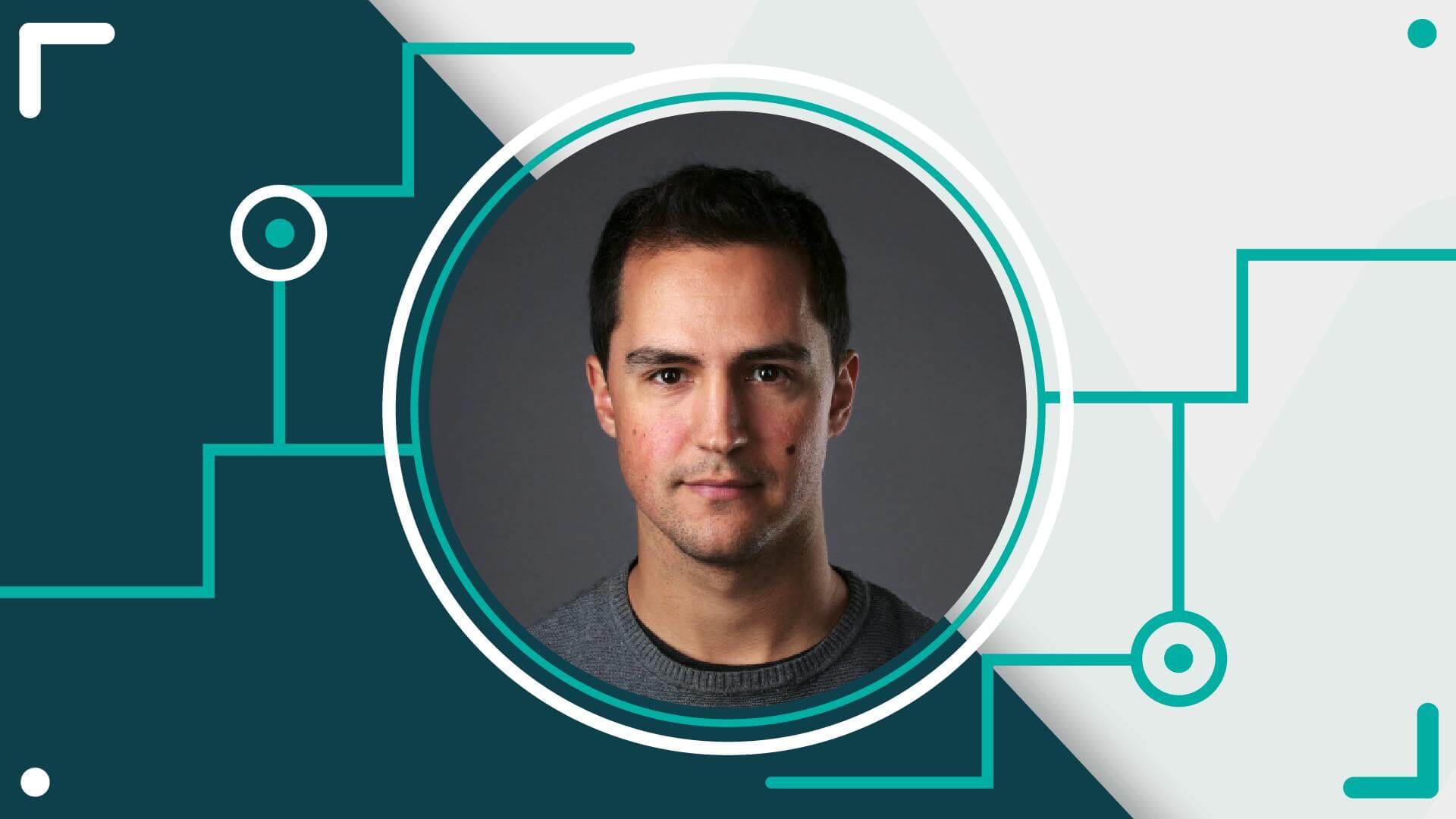
To get readers up to speed, let’s talk about your professional life. How did you choose this career path?
As a child, I would tell my parents that I wanted to be an observer. At the time, I had no clue how it would translate into a career path, but I remember that I loved to spend time looking at things and trying to figure out how they worked.
As I grew up, this motivation led me to study Physics for my bachelor’s degree, then do a Master’s in Artificial Intelligence, and finally pursue a PhD in Neuroscience.
Now, as a Data Scientist at Veriff, I find myself looking at large data sets and figuring out which algorithms can best extract certain information in order to automate efficiently processes at Veriff products. I would say this career path is close to what I, as a child, liked to do.
Interesting! Let’s dive deeper into your PhD experience. How did you enjoy life in the academic world?
Already in the last years of my degree in Physics, I knew I wanted to do a PhD. Typically the subjects in a degree or master’s only scratch the surface of the concepts they touch on. This was one of the main reasons I wanted to do a PhD, to go deeper into a topic of interest and potentially discover something novel.
At the end of my degree in Physics, I got interested in complex systems, and I was fortunate to find the laboratory of Prof. Gonzalo G. de Polavieja. At the time, he had recruited an excellent group of physicists and biologists working together to understand the rules of interaction of animal collectives (e.g. schools of fish) using mathematical models, which really got me interested. So, I did my PhD in Neuroscience at the Champalimaud Foundation on the application of deep learning techniques to extract, analyze and model the behaviour of fish collectives.
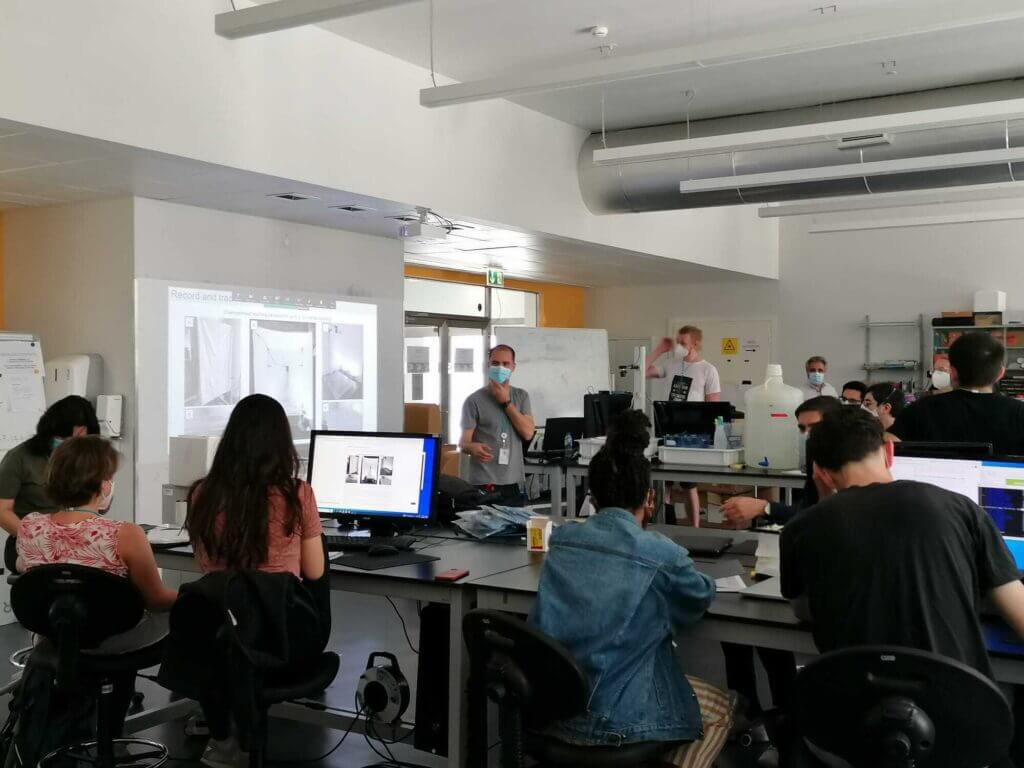
Photo: Paco teaching at Champalimaud Foundation in Lisbon.
One of the highlights of my PhD work was the development of idtracker.ai, which is a deep learning-based multi-animal tracking software that identifies each animal in a collective and tracks their positions over time from a video.
Besides all the technical skills that I learned during my PhD project development, these academic years have been an unbelievable personal growth experience for me. I met plenty of smart and interesting people, improved my communication and organizational skills and above all, learned to stay positive on negative results, which science is full of.
You have also been giving lectures to other PhD students. What are the biggest challenges for you to share your research and knowledge with other students?
Most of the teaching I’ve done about my research is related to showing students how idtracker.ai works and how to use it in the best way possible in their experiments in summer courses. Explaining the inner workings of software that one has dedicated three years of thought in 3 hours is quite challenging, especially because part of the audience are biologists with little exposure to the deep learning world (although this gap is getting smaller).
What I’ve learned is that if one manages to give a motivating overview of the bigger picture, then students get hooked on the topic and understanding the details becomes more attractive to them. The challenge of explaining how to use idtracker.ai would be less of a challenge if the students got some basic details of the inner workings.
For example, suppose students understand how important the image condition is to perform a classification task using a convolutional neural network. In that case, they will be more careful when recording the videos of their experiments or setting the parameters needed for the system to extract trajectories with high accuracy.
Great! Let’s now move to your current job at Veriff. How did you find your way here?
My experience, which I believe is shared by many PhD students, is that the PhD is quite intense, especially in the last few years. This means that if you are not careful, you end up with a pretty messed-up work-life balance. So, I knew I needed a rest from academia. Given my skills and experience in machine learning, I thought it would be fun to work in this industry on a company level too.
I had spent a fair amount of time thinking about how to identify animals from videos. Therefore, I was very interested to know how this would work with people in a real-world scenario. So, Veriff looked like a perfect match for me, and that’s why I decided to continue my career in this company.
What does your everyday work life look like?
Because of the pandemic, I got used to remote work a lot, and I really like it. When I started working at Veriff, I was delighted to discover that the company had taken a flexible hybrid approach to work, which suits my lifestyle.
At work, I spend most of the time in front of the computer coding and looking at data. Mainly, I analyze the results of ML experiments or have meetings with teammates from other departments.
Before the start of my work day, I often go for runs early in the morning. Throughout the day, I try to take short breaks to rest my eyes and stretch my body.
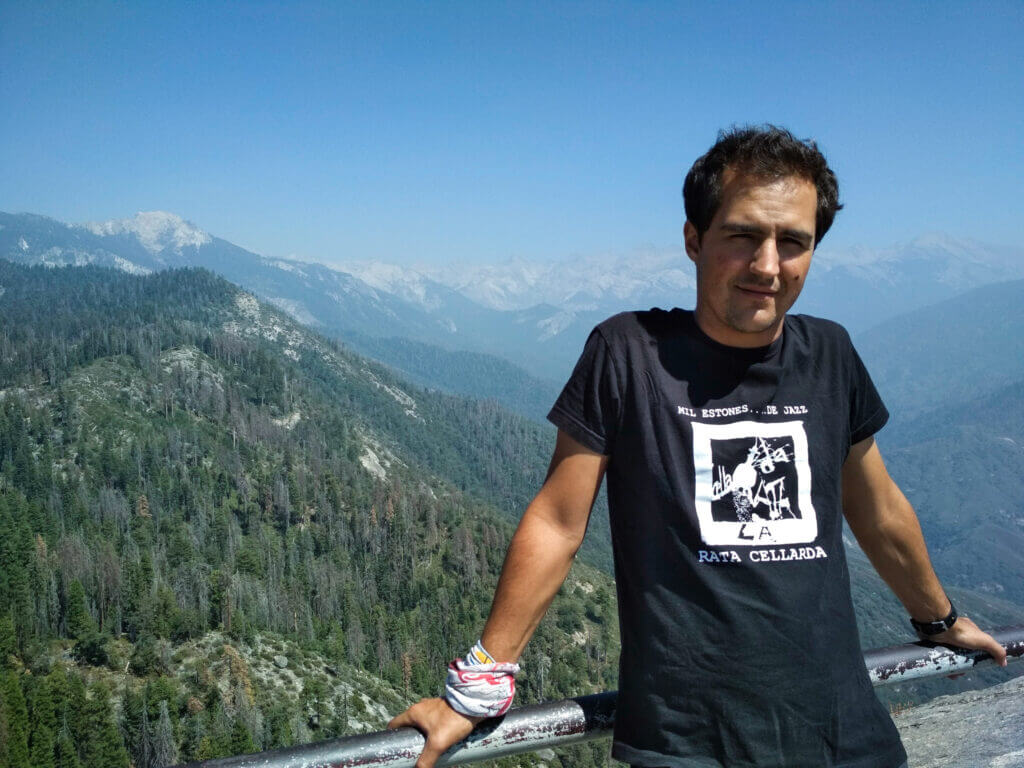
Photo: Paco enjoying outdoors
Which of Veriff’s values resonate with you the most?
I consider myself a pretty proactive and creative person, and I love being able to put my ideas to work. Besides being the only way to test whether my intuitions are correct, I believe that encouraging people to be active at work is the best way to find novel solutions to problems. So, I would say that the value “Ideas are free. Execution is priceless” resonates with me the most.
What are the challenges to being a Data Scientist in a company like Veriff?
Veriff is growing fast, so making sure that our products use the most accurate, reliable and robust models is crucial for the success of the company. One of the biggest challenges is to make sure that we test our models with data and conditions as close as possible to the production ones. This helps us understand that the effort done during the development of the model is worthwhile and improves our product.
Finally, tell us about your hobbies.
In my free time, you will find me running, playing music, taking photos or reading a book. Also, I dedicate some hours of the week to doing data science work for the NGO crowdfight.org, which helps create scientific collaborations.
Thanks! Let’s move on to the quickfire questions now.
What is a must-read book?
Two of the books I enjoyed a lot in the last few years are “Sapiens” and “Home Deus” by Yuval Noah Harari. I enjoyed reading about his fresh view of history and the possibilities for the future of humankind.
Your favourite podcast?
My favourite one would be a Spanish podcast called “De eso no se habla” (We Do Not Talk About It). They interview people with interesting stories about topics that are taboo in Spanish society.
If you weren’t an engineer, what would you be?
I would probably be a professional musician. I’ve played music since I was 7, and my passion for it has not faded after all these years. I love performing live, but I also love studying and teaching music.
Mac or PC?
I use a PC for work and Mac as a personal computer.
What would be your advice to anyone who wants to kick-start their career as a Data Scientist?
Nowadays the internet is full of tutorials about coding in different languages, however, the best way to learn is to start project development yourself and dedicate time to it. Recently, I discovered an NGO called CorrelAid, where junior and senior data scientists help other NGOs with data engineering-related problems. I discovered that it is an excellent environment for future engineers to learn from more experienced ones.
